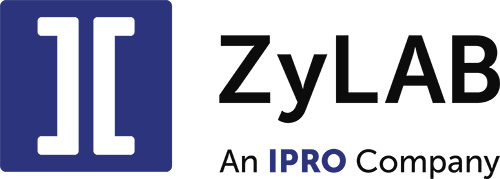
A Guide to Legal E-Billing Software: Simplify Billing, Strengthen Compliance, and Get Paid Faster
Modern Legal E-Billing Software Is Reshaping the Business of Law
Table Of Content
- 🔍 What Is Legal E-Billing Software?
- ✅ Core Benefits of Legal E-Billing Software
- 🚀 Faster, Error-Free Invoice Processing
- 🔐 Compliance With Billing Guidelines
- 💸 Real-Time Budget and Spend Tracking
- 💰 Improved Cash Flow
- 📊 Data-Driven Financial Insights
- 🧠 Must-Have Features in Legal E-Billing Software
- 💡 Top Legal E-Billing Platforms to Watch in 2025
- 🔷 Thomson Reuters 3E
- 🔷 ZyLAB eBilling
- 🔷 TimeSolv
- 🔷 SimpleLegal
- 🔷 Bill4Time
- 📦 Key Questions to Ask Before Choosing
- ✨ Final Thoughts: Make Billing a Strength, Not a Struggle
In today’s fast-moving legal environment, traditional billing methods — manual timesheets, emailed PDFs, and outdated accounting systems — are doing more harm than good. They eat up precious hours, lead to costly errors, delay payments, and can strain even the best client relationships.
Enter legal e-billing software: a smarter, faster, and more secure way to handle law firm invoicing. But as with any legal tech solution, not all tools are created equal. Whether you’re a solo attorney, midsize practice, or large firm, choosing the right e-billing system can dramatically improve your efficiency and bottom line.
🔍 What Is Legal E-Billing Software?

Legal e-billing software is a digital platform designed specifically for law firms to manage billing workflows from end to end — time tracking, invoice generation, compliance enforcement, client delivery, and analytics.
Unlike generic invoicing tools, legal e-billing software supports the unique demands of legal billing such as:
- UTBMS and LEDES codes
- Client-specific billing guidelines
- Regulatory compliance and auditability
- Accrual tracking and law department integration
It’s not just about sending invoices — it’s about billing smarter, faster, and with greater transparency.
✅ Core Benefits of Legal E-Billing Software
🚀 Faster, Error-Free Invoice Processing
- Automate recurring billing tasks, time entry syncing, and multi-level approvals.
- Minimize human errors and manual rework.
🔐 Compliance With Billing Guidelines
- Built-in checks for LEDES formats, task codes, and client protocols.
- Dramatically reduce invoice rejections and costly resubmissions.
💸 Real-Time Budget and Spend Tracking
- Monitor case budgets and accruals as you go.
- Avoid budget overruns and enhance client trust through transparency.
💰 Improved Cash Flow
- Accelerate invoicing and payment turnaround.
- Reduce DSO (Days Sales Outstanding) and improve your firm’s liquidity.
📊 Data-Driven Financial Insights
- Track billable vs. non-billable hours, profit margins, and timekeeper productivity.
- Use built-in dashboards to make informed decisions and grow strategically.
🧠 Must-Have Features in Legal E-Billing Software
When evaluating platforms, prioritize tools that offer:
- LEDES & UTBMS Support – Essential for working with corporate clients and insurers.
- Time Tracking Integration – Sync billable hours directly into your invoices.
- Automated Invoice Review – Built-in logic flags errors before submission.
- Custom Approval Workflows – Route invoices through the right approvers by case or client.
- Batch Billing Capabilities – Generate multiple invoices at once with ease.
- Client Portal Access – Let clients review, download, and pay invoices online.
- Audit Trails – Full transparency for regulatory or client audits.
- Integrations With Practice Management Tools – Ensure seamless workflow from intake to payment.
Bonus: Look for AI-enhanced features that can detect compliance risks or predict billing disputes before they arise.
💡 Top Legal E-Billing Platforms to Watch in 2025
Here are some of the best-performing tools this year — depending on your firm size, budget, and feature needs:
🔷 Thomson Reuters 3E

- Best for: Large law firms
- Known for: Deep customization, enterprise-level analytics, robust compliance features.
🔷 ZyLAB eBilling

- Best for: Regulated sectors (finance, pharma, healthcare)
- Known for: Risk analysis, audit-readiness, powerful legal ops integration.
🔷 TimeSolv

- Best for: Small and midsize firms
- Known for: Intuitive UI, seamless time tracking, strong value for cost.
🔷 SimpleLegal

- Best for: Legal departments and legal ops
- Known for: Clean interface, analytics dashboards, legal spend tracking.
🔷 Bill4Time

- Best for: Solo attorneys and boutique firms
- Known for: Quick setup, mobile access, all-in-one billing and timekeeping.
🧪 Pro tip: Always demo at least 2–3 platforms before committing. Your firm’s specific workflows, clients, and staff needs should guide the final decision.
📦 Key Questions to Ask Before Choosing
- Does the software integrate with your existing practice or case management system?
- Can it support multiple billing models — hourly, flat-fee, hybrid, or contingency?
- What security protocols are in place to protect client and financial data?
- Is the client experience seamless, with self-service invoice access and online payments?
- What kind of training, onboarding, and customer support does the vendor provide?
✨ Final Thoughts: Make Billing a Strength, Not a Struggle
The modern law firm must be leaner, smarter, and more client-focused than ever — and outdated billing systems simply won’t cut it. With the right legal e-billing software, your firm can increase transparency, eliminate inefficiencies, and boost client satisfaction — all while getting paid faster and more reliably.
Billing isn’t just a back-office task — it’s a client-facing experience.
Make it accurate. Make it easy. Make it count.

